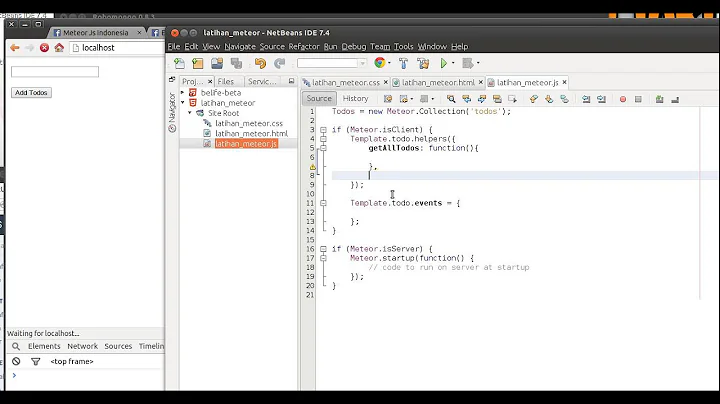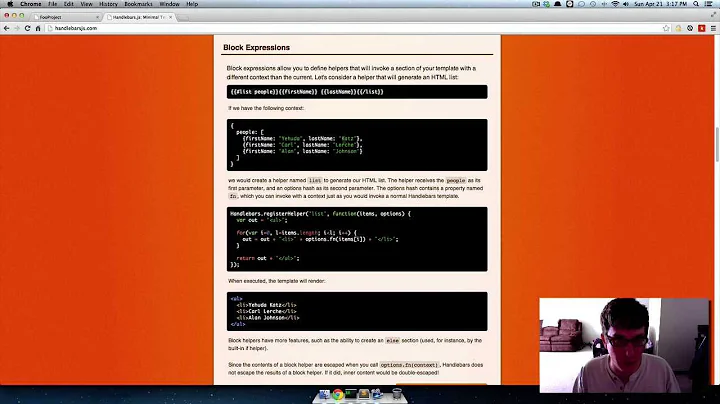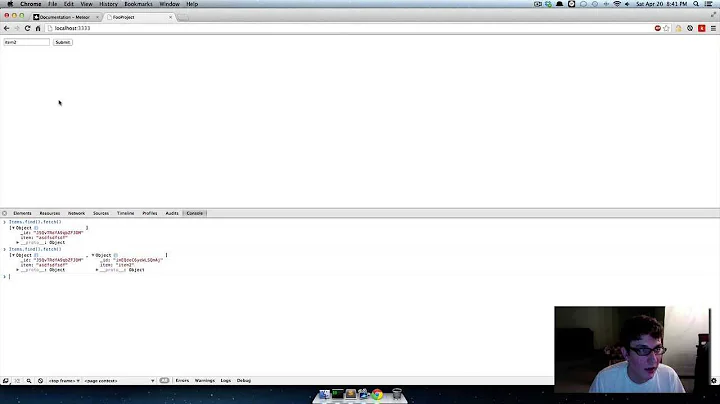Insert field with $currentDate to MongoDB collection in Meteor
Solution 1
What's the point of having an operator that only works with updates, if that's indeed the case?
$currentDate is an update operator thus you can't use it with the collection.insert method. But when upsert is true it will create a new document when no document matches the query criteria. MongoDB operators tend to follow the Unix philosophy
Do One Thing and Do It Well
So each operator should perform only one task.
Why/when is
$currentDatebetter thannew Date?
First I would like to mention that new Date is a JavaScript Date instance.
$currentDate and new Date can be used when you want to update the value of a field to current date but with new Date you need to use another update operator for it to work. For example:
-
Using
new Datedb.collection.update({ "name": "bar" }, { "$set": { "date": new Date() }}) -
Using
$currentDatedb.collection.update({ "name": "bar"}, { "$currentDate": { "date": { "$type": date }}} )
Unlike $currentDate, new Date can be use with the insert method and value can be set to a particular if Date is call with more than on argument.
Solution 2
You can retrieve timestamp from autogenerated "_id" that is created within insert operation.
http://api.mongodb.com/java/current/org/bson/types/ObjectId.html
Just use the method : ObjectId.getTimestamp().
Timestamp granularity is in seconds.
Solution 3
$currentDate when used in the $update construct can be used to insert fields if they do not pre-exist in the document.
Quoting documentation for Mongodb 3.4: Behavior
If the field does not exist, $currentDate adds the field to a document.
Related videos on Youtube
Mallory-Erik
Updated on September 29, 2021Comments
-
Mallory-Erik over 2 years
Not sure how to use $currentDate when inserting a document into a MongoDB collection in Meteor.
Can this only be used in an update, not an insert? Would seem strange, but I don't see an alternative (other than using
new Dateinstead).Example
Stuff.insert({ owner: Meteor.userId(), createdAt: ..., // how to create this field with $currentDate ? theStuff: "Some of the good stuff" })Notes / Thoughts / TL,DR
- Fields can't start with $ operators or, as far as I know, curly braces
{}. - What's the point of having an operator that only works with updates, if that's indeed the case?
- Why/when is
$currentDatebetter thannew Date? - One nice thing, if using Moment.js esp, is that $currentDate is entered in ISO 8601 format.
- Is the answer to do some kind of upsert from the start? If so, could this have unintended consequences?
- Fields can't start with $ operators or, as far as I know, curly braces
-
Mestre San about 8 yearsStill. If you have a distributed application connecting to your replicaSet / sharded cluster inserting a lot of docs per second you would like a createdAt field to be consistent and using the $currentDate on the Insert would be a better solution. If you don't have a high insertion volume upsert and insert might be the same for you but they are actually not. Upsert is slower and when you use new Date you are getting the date from the client machine not from the database server, thus you are vulnerable to inconsistencies when it comes to sorting by createdAt.
-
styvane about 8 years@MestreSan
$currentDateonly works withupdateOneorupdateMany. Not withinsert. Perhaps you mean update when you say insert in comment. -
Mestre San almost 8 yearsNo @user3100115, I know that
$currentDateonly woks with updates and not with insert. What I meant was that would be a good feature to have the$currentDateoperator available on inserts. Just like any RDMS has thenowfunction available on inserts for example for one to use on a field createdAt to know the precise moment your record was created. -
 Gian Franco Zabarino almost 8 years@MestreSan Checkout my answer to this question, it may be a solution for what you're stating: stackoverflow.com/a/37061284/2911851
Gian Franco Zabarino almost 8 years@MestreSan Checkout my answer to this question, it may be a solution for what you're stating: stackoverflow.com/a/37061284/2911851 -
Eric Rini about 7 yearsIs it possible to use $currentDate in conjunction with the $setOnInsert operator. This would allow an upsert\insert to set a "created" date, without upsert\update overwriting it each time.









